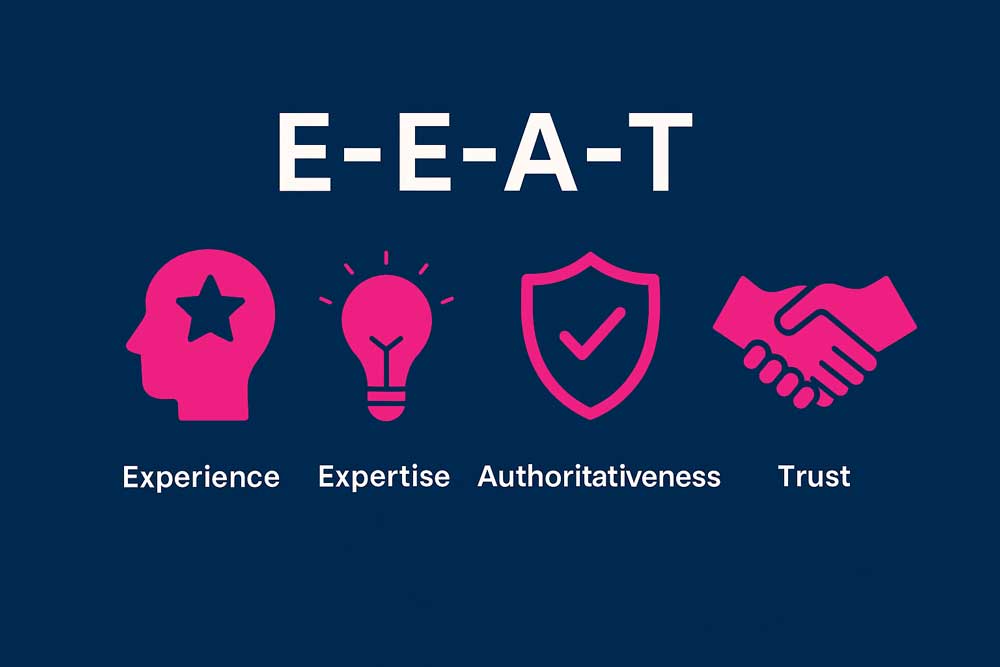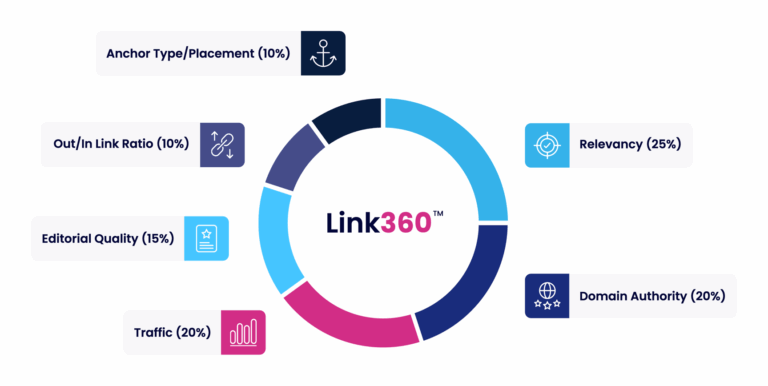
Most financial advisers, planners and wealth managers rely heavily on word-of-mouth referrals. But that approach comes with challenges: unpredictable pipelines, peaks and troughs, and little control over the flow of new enquiries.
To create a steadier stream of leads, many firms are looking online. But the search landscape has changed. Clients are no longer just scrolling through Google. They’re turning to ChatGPT, Perplexity, voice assistants and AI-powered summaries to get instant answers — often without even clicking on a website. That shift means visibility alone is not enough. You need to show up with credibility, clarity and trust.
In this article, we’ll explore how SEO – both traditional and AI-driven – can help financial professionals build a stronger online presence, attract better-fit clients, and generate more consistent demand.
Beyond Google: what financial advisers need to do to stay visible in 2025
Search has changed. It’s no longer just about showing up on page one of Google. These days, potential clients are turning to AI tools like ChatGPT, Perplexity, Gemini and Google’s AI Overviews to get instant answers to their financial questions.
In fact, more than 60% of users now get what they need without even clicking through to a website. That means if you’re not appearing in those AI answers or voice search results, you’re not in the running.
For financial advisers, planners, wealth managers and investment managers, that’s a big problem. These AI tools are quickly becoming the new gatekeepers between your expertise and the people searching for it.
To stay visible, it’s time to start thinking beyond traditional SEO. That means understanding new concepts like LLMO (Large Language Model Optimisation) and GEO (Generative Engine Optimisation) – both of which involve making your content more useful, authoritative and easy for AI to understand.
🔗 Get to grips with LLMO, GEO and what they mean for search in our guide to AI search optimisation
Why EEAT matters more than ever financial advisers
When it comes to SEO in the financial sector, Google isn’t messing around. Because financial advice can impact someone’s future, it falls under what Google calls Your Money or Your Life (YMYL) content. That means the bar is much higher – and the trust signals you send online really matter.
This is where E-E-A-T comes in. It stands for Experience, Expertise, Authority and Trustworthiness – and it’s how Google (and AI tools) judge the quality and credibility of your content. The more you can demonstrate these four things, the more likely you are to appear in both traditional and AI-driven search results.
So what does that look like in practice?
- Detailed adviser bios that show qualifications, experience and areas of specialism
- Clear FCA credentials on your website
- Testimonials from real clients
- Case studies that show the impact of your advice
- Mentions in respected publications or industry platforms
If you’re trying to attract high-quality leads, E-E-A-T isn’t just a nice-to-have – it’s a must. Every search engine, whether it’s Google or ChatGPT, wants to surface results that feel trustworthy. Your job is to prove you’re exactly that.
🔗 Want to know more about the importance of E-E-A-T? Take a look at our guide to how EEAT works and why it matters

Optimising for AI and traditional search
These days, it’s not enough to rank at the top of Google. You also need to appear in AI-generated answers, voice searches, and instant summaries – wherever your next client is looking.
The good news? The foundations of SEO still work. But they need a few upgrades to keep you visible in today’s fast-changing search landscape.
Here is how to stay ahead:
Answer real questions: Whether someone is searching in Google or asking ChatGPT, they’re looking for clear, helpful answers. Build your content around the actual questions your ideal clients ask – think “How to build my pension pot when I’m self-employed”, or “What can I do to minimise Inheritance Tax?”.
Structure matters: AI tools pull answers from well-organised pages. Use FAQs, bullet points, and concise summaries to make it easier for AI to find and cite your content.
Stay on-topic. Publishing consistently around a clear niche builds topical authority. That means Google and AI tools start to recognise you as a go-to source in your space – whether it’s retirement planning, investment strategy or estate planning.
Write how people speak. With voice search on the rise, content that sounds natural and conversational tends to perform better. Think fewer buzzwords, more clarity.
Reuse your best content. Repurpose blogs into social posts, email tips or short-form videos. The more places you show up, the more likely your ideal client is to find you.
💡 In short, optimise for humans and machines – because both are part of the search journey now.
Content ideas for financial planners that drive trust – and action
To stand out in search – whether it’s Google or AI tools – your content needs to feel useful, specific and trustworthy. That means ditching generic advice and instead sharing insights that reflect your real expertise.
Here are a few ways to do that:
Answer the questions your clients actually ask: Try things like: “What to consider if I’m retiring abroad with multiple income sources?” or “How can I pass assets to my children without triggering Inheritance Tax?” These kinds of searches matter – and AI tools love this type of content.
Put your people front and centre: Share short bios of your team, what they care about, and what they specialise in. That human touch helps build trust – especially in a world where relationships matter.
Use real examples: With permission, tell the stories behind your results. You don’t need to name names – just show how your advice helped someone solve a problem or reach a goal.
Stick to your niche: If you specialise in wealth planning for business owners or expats, focus your content there. You’ll build credibility faster and attract better-fit leads.
The more tailored your content, the more likely it is to surface in AI results – and the more it will resonate with people looking for answers.
🔗 Want more ideas? Check out our blog on SEO strategies for finance firms
Social proof and multi-channel presence
Clients don’t just Google you. They’ll check your website, scroll through your LinkedIn, scan your Google reviews – maybe even glance at your Instagram. It all counts.
That’s why your online presence needs to feel joined-up. If your website says one thing but your LinkedIn profile is out of date, it creates doubt. And doubt means hesitation – or lost leads.
Start by making sure:
- Your tone and messaging are consistent across every channel
- Your Google Business Profile is fully set up and regularly updated
- You’re encouraging satisfied clients to leave reviews (and responding to them!)
- Your social media content reflects your expertise, without being dry or corporate
In finance, trust is everything. And people feel more confident about contacting someone who looks credible everywhere they search.
🔗 Not sure what to post? Our blog on social media for financial services has plenty of ideas.

Quick wins: what you can do right now to boost your client leads online
Audit your website – Is it clear what you do, who you help, and how to get in touch? Does it load quickly and look good on mobile?
Showcase your team – Add adviser bios with qualifications, areas of expertise, and real-life experience. It builds trust and helps you stand out.
Optimise your Google Business Profile – Make sure all your info is accurate, and upload a few recent posts or photos to keep it active.
Add AI-friendly FAQs – Tools like ChatGPT scan content for quick answers. Short, structured responses to common client questions can help you show up more often.
Ask for reviews – A steady flow of detailed, authentic client testimonials is one of the most powerful ways to earn trust online.
Pick one or two of these to start – they’ll make a real difference.
Want to be the financial adviser clients find – and choose?
SEO for financial advisers, planners, wealth managers and investment specialists is no longer just about getting found on Google. It’s about showing up consistently, with credibility and clarity, across every platform your clients trust – from LinkedIn and Google Business Profiles to ChatGPT and other AI-powered search tools.
That means combining traditional SEO best practice with a future-ready approach. Showcasing your expertise. Building trust through proof. Answering the questions clients are already asking – in the places they’re looking.
If you want to stop relying solely on referrals and build a steadier stream of high-quality leads, we can help. At Figment, we create tailored AI search optimisation and SEO strategies that align with your niche, reflect your authority and work across both human and AI search platforms.
Talk to Figment today and let’s make sure your financial services business is the one that shows up – and the one that gets chosen.




